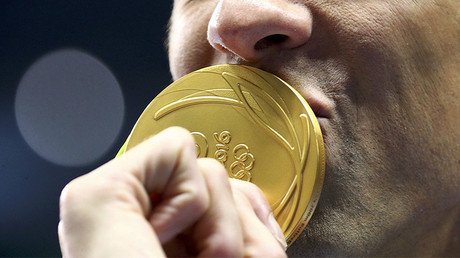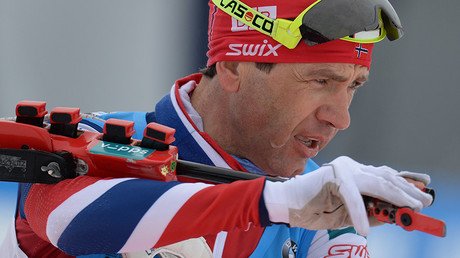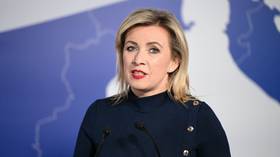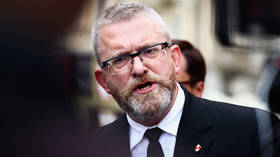IOC expects Sochi Olympics re-test results in ‘1 to 2 months’
The global anti-Russian sports campaign centered around doping allegations might finally be put to rest with some real evidence if the International Olympic Committee delivers on its promises.
Results of the re-testing process of samples given by Russian athletes at the 2014 Winter Olympic Games in Sochi should be ready in “one to two months,” according to Gerhard Heiberg, a member of the IOC.
The work of the IOC Commission was “happening quickly,” Heiberg told Norwegian broadcaster NRK.
Last month, the World Anti-Doping Agency (WADA) published the second part of a report by Canadian lawyer Richard McLaren, claiming that “more than 1,000” Russian athletes were involved in a doping schemes.
The programme was allegedly run by Russian secret services and involved sneaky urine swapping through “mouse holes,” the usage of a strong performance-enhancing drug cocktail dubbed ‘Duchess’ and other wrongdoings. The shady plan was allegedly utilized at several major events, including Sochi 2014.
Some sort of “evidence of manipulation” has been allegedly found in 28 out of 95 analyzed samples given by Russian competitors at their home Olympics. The IOC launched disciplinary investigations into these 28 Russian athletes last month.
Meanwhile, sports journalists and officials along with athletes are questioning the international sports system itself.
The tragedy of this whole situation is that despite months of scrutiny and increased focus on Russian athletes, the global anti-doping system in general has not become any more transparent, sports columnist Alan Moore believes.
“That is a very sad and non-transparent way that the world of sport operates,” Moore told RT, explaining it is not uncommon for a totally clean athlete to be disqualified or stripped of a medal when their results were proven clean, but sample bottle showed signs of “manipulation” even if by a complete stranger.
“It is about as transparent as a puddle of mud… It is laughable in one way, except people’s lives, reputations, careers and their livelihoods in that sense are being destroyed by this… We know that we have issues with doping in Russia, every country has the same. However, by focusing on this one thing and punishing, punishing, punishing, is not doing anything to help sport.”
The athletes should not be subjected to collective punishment just for being Russian, the President of the International Ski Federation (FIS), Gian-Franco Kasper told Dutschlandfunk in a radio interview.
“We should not suspend those who are innocent,” the Dutschlandfunk website quotes him as saying. “I believe that we should punish only those who are guilty, not everybody just because they have Russian passports. That’s wrong both humanely and legally.”
The FIS head, however, was quick to punish those Russian athletes who were on McLaren’s list even before conducting his own investigation.
“I understand that many athletes are concerned about this situation,” he said. “However, just two hours after the IOC gave us an opportunity to make a decision, we suspended all six Russian cross country skiers who were on the list of WADA’s Independent Commission head, Richard McLaren. Now let’s see what our investigation will show.”
The suspension of a large number of Russian biathletes and threats of a boycott forced the Russian Biathlon Union to give up the rights to host the World Cup in Tyumen last month, drawing angry responses. “To cancel the World Cup in Tyumen is a masquerade of fight against doping because the only punished ones are the biathlon fans in Russia,” French biathlete Martin Fourcade told RMC Sport.
“It satisfies greatly only those who wanted to impose pseudo sanctions on Russia. These are the people who are happy, they have the impression that something is being done, but in fact it does not change anything. I'm tired of that and annoyed.”
The professional sport, namely athletics, has been brought to “the brink of destruction” by “the fanatic quest for records,” Gianni Merlo, the president of International Sports Press Association (AIPS), told International Association of Athletics Federations (IAAF) President Sebastian Coe in an open letter published on the AIPS website on Tuesday.
The latest IAAF innovation, a portal to anonymously report “suspicions of doping” was a “necessary” thing, but investigating “anonymous suggestions and the whispers” would be a real problem, Merlo believes.
“If the fight against doping has come to this point, if it is as difficult as we all agree it is, then I think that the moment has arrived to close the world record books in athletics and open new ones,” reads the letter.
“Why? Because what we can see emerging is so many Olympic champions being stripped of their medals, their records. Given the doubts of the past that plague the sport, I think it would be healthy to begin a new era of athletics that would give new hope to coming generations.”














